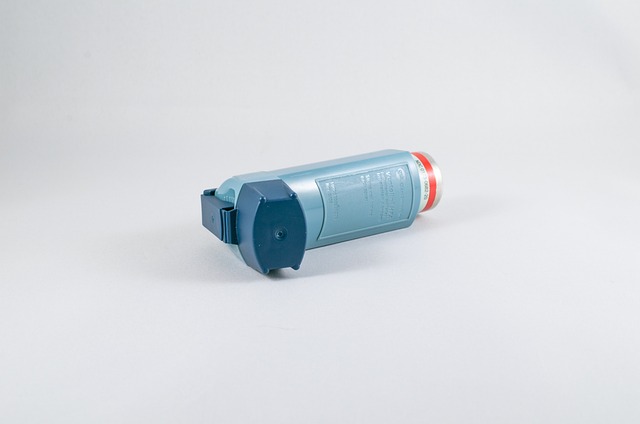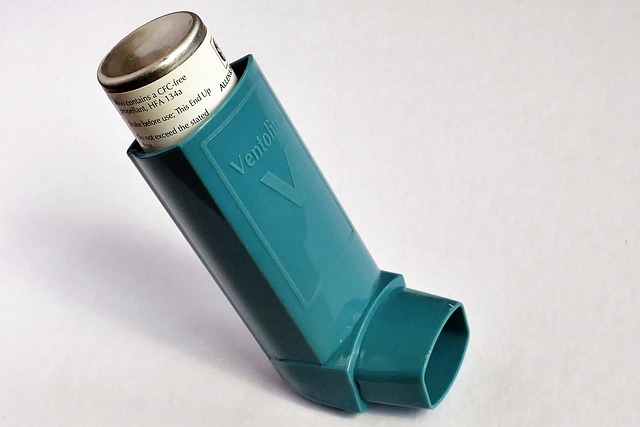
Asthma is hard to live with. The fact that even something as simple as going for a walk can cause complications leaves you feeling incapacitated. Even worse, the disease can not be cured and the symptoms can be hard to control. The below article provides some advice on preventing your symptoms from getting too bad.
Cleaning products can trigger an asthma attack, so try to keep your exposure to them to a minimum. The chemicals in these products make you more prone to an asthma attack. If you enjoy cleaning, or are the sole cleaner in the household, you are sure to be able to find one of the many natural cleaners that will be safe for your use.
Be careful of chemical cleaners if you are asthmatic. A lot of agents in cleaners tend to trigger asthma attacks and symptoms. It is advisable to consider using products that have an organic base when cleaning.
Keep rooms free of dust, and do not turn on a fan if you do have dusty rooms. Turning on a fan is going to cause the dust to leave its surface and begin filling the air of your environment. It would be better to just open a window if you are needing to get some airflow.
There are some medications out there that you could be taking which will actually trigger your asthma symptoms. Some anti-inflammatory drugs, such as aspirin or ibuprofen, can flare up asthma symptoms. Some medications for blood pressure and heart disease – those referred to as beta blockers – can also exacerbate asthma problems. Make sure your doctor knows if you are taking such medicine and also have asthma.
Always use your inhaler in the proper manner. Go to a quiet place, and be sure to follow all instructions from the manufacturer. The inhaler only can help if it’s medicine reaches the lungs. Spray the required dosage into your mouth while inhaling air. Hold your breath for at least 10 seconds to allow the medicated mist to fill your lungs.
Asthma is ongoing. Therefore, it also requires continual management of your health. Ensure you’re taking the proper medications to manage common symptoms of asthma. In case of an attack, you need to have in your possession a medication that will provide almost instant relief. Speak to your physician and allergist to find out what medications are right for you.
Make sure that everyone in your family gets their flu shot. Respiratory infections can seriously hurt those who suffer from asthma, so take measures to avoid contracting them. Take the right steps to stop yourself from getting sick, wash your hands and get the right vaccines.
When you are suffering from an asthma attack, exhale all of the oxygen from your lungs. Exhale as quickly as possible, expelling air forcefully out of your lungs. It can’t be said too strongly: you must force the air out! Breathe in by taking three quick breaths, followed by one very deep breath. Doing this will fill your lungs completely, and allow you to expel the air forcefully again. This technique develops a breathing rhythm, allowing you to notice the breaths that you take in. It also allows you to take in more air by completely emptying your lungs. This may cause you to cough or it may cause phlegm, but your breathing will be back to normal again.
Using four or more cleaners in your home can contribute to asthma attacks. Organic cleaners are also a safer choice since they contain fewer chemical irritants.
Cigarette Smoke
If you have asthma, it is imperative that you stay away from smokers. When you breathe in smoke, especially in small spaces, it diminishes breathing ability, which greatly increases the probability of an asthma attack.
Asthma sufferers should avoid smoking cigarettes and any place that has cigarette smoke. This cannot be emphasized enough: Stay away from cigarette smoke! It is also a good idea to stay away from the fumes or vapors from harsh chemicals, such as those used in cleaning. Chemical fumes will trigger asthma attacks that you won’t be able to put an end to. If you are around people who smoke, leave the area very fast.
If you suffer from asthma, you should refrain from sleeping on a pillow that contains feathers. Feathers may trigger asthma symptoms by irritating your lungs. Your other bedding, such as sheets, blankets and comforters, should be hypoallergenic, too.
Use the inhaler the right way. Find a spot that is peaceful, and then follow the instructions given by the manufacturer. Remember that the medication must reach your lungs if the inhaler is to work properly. Inhale the air and spray the right amount down your throat. Hold your breath at least ten seconds, so that the medicated mist can fill your lungs.
Think about the benefits of joining an online or in-person support group. Asthma is a disease that can affect your everyday life and prove debilitating in so many ways. As science marches on, new medications and treatments for asthma become available, and you can keep abreast of this progress through a good support group.
If you suffer from asthma, ensure that your diet contains adequate amounts of Vitamin E and Vitamin C. They are believed to aid respiratory function and to be instrumental in keeping your asthma in check. Get these nutrients through supplements or food. You can help out your immune system that can help stave off asthma triggers!

Asthma is a health condition that usually develops over a period of time, and has symptoms that may not be obvious. Many individuals died from their very first asthma attack because they weren’t aware they had the risk factors for an attack. If you have any trouble catching your breath or a cough that won’t go away, consider talking to your doctor to make sure that you aren’t afflicted with asthma. If you are, you’ll need to keep an inhaler with you at all times and possible take other medications.
People suffering from asthma should stick to unscented products. Fragrances are present in hundreds of common consumer products, including cleaning supplies, perfumes, detergents and room sprays. Any of these items could easily increase the of triggering an attack. In addition, paint that is fresh or carpet that is new release odors that can cause breathing irritations that lead to an asthma attack. Try to see that the air inside your home remains as fresh as possible.
Track how often you use your inhaler during each week. Your medication may need to be adjusted or an alternative treatment considered if you find that you need to use it 3 or more times per week. You can use your frequency of inhaler use to gauge the effectiveness of your asthma treatment plan and make modifications when necessary.
Asthma treatment dosages will need to be increased if you are sick with a cold or are dealing with hay fever. Many illnesses have side effects that could cause your asthma to flare up so badly that you need to have an increase in treatment. Your doctor might add additional medication until your sickness gets better.
Consult with more than one physician. Your family doctor will be in charge of your asthma treatment, but seeing a specialist can provide you with invaluable help. You’ll want to visit an asthma center, or consult with a pulmonologist to get additional help improving your lung function. In addition, you should get tested for allergies so that you can avoid allergic reactions that trigger asthma attacks.
Avoid pillows with feathers if you have asthma. Pillow feathers force the lungs to work harder and can exacerbate asthma problems. The same reasoning applies to all bedding – only purchase bed sheets and comforters that are manufactured from hypoallergenic materials.
People with asthma should not smoke. People know that smoking is dangerous, but it is even more dangerous to those with asthma. Asthmatic lungs are extremely sensitive, and should not be exposed to smoke. Someone who has asthma should not only avoid smoking, but should also try to avoid being exposed to people smoking in their vicinity.
During cold, winter months, asthma sufferers should wear a shawl, muffler, or scarf that will cover both their nose and mouth. This lets the air warm slightly before you breathe it in. Inhalation of cold air is proven to initiate asthma attacks, and younger kids afflicted with asthma of moderate or severe proportions are especially at risk.
You should not use a vaporizer or humidifier if you have asthma or allergies unless you are sure that it is clean. Bacteria can grow inside the machine because of the moist environment, and you will be releasing that right into the air if you are using it.
While using an inhaler can potentially cause mouth or gum sores, it is still important to use it daily if you suffer from severe asthma. Always clean your teeth and rinse your mouth after you use your inhaler.
If you experience an asthma attack, stay calm. Use your inhaler, wait 30 seconds and use it again. If your attack worsens, get help. Ask someone to drive you to the closest hospital or call an ambulance. Breathing into a paper bag on the way can sometimes help by slowing your breathing rate.
Avoiding smoke is key in controlling asthma. The inhalation of smoke can easily trigger an asthma attack. Stay away from all types of fumes as well as cigarette smoke. All of these will increase your asthma symptoms. If someone smokes around you, ask them politely if they could smoke when you are not around.
Buy a mask to keep yourself from breathing in harmful fumes if you plan on painting in your home. Paint chemicals are a powerful irritant that can cause an asthma attack if inhaled without a mask. Do not go use certain chemicals that will make your asthma worse.
Avoid smoking and people who are smokers. Although bad for everyone, cigarettes can cause greater problems for those with asthma. Smoke greatly irritates the sensitive lungs of the person with asthma, so in addition to not smoking, someone with asthma should avoid people that are smoking.
Include more vitamin B6 foods in your diet. Getting increased amounts of B6, also called pyridoxine, has been scientifically shown to make asthma attacks less frequent. Pyridoxine is very important in the production of certain molecules that will help relax bronchial tissues. Bananas are an easily accessible source of vitamin B6.
Asthma is a serious, sometimes debilitating, disease. It is certainly not something to scoff at. Do what you can to prevent symptoms, and get professional help if you think it may be beyond your control. Use the advice you have read from this article to manage your symptoms of asthma and take back control over your life.
You need to identify your particular triggers so that you can prevent an asthma attack. If you aren’t sure what causes your asthma to act up, keep a journal. Write down what you were doing and where you were just prior to each attack. Bring your journal to your doctor’s office during each appointment so that she can help you figure out your asthma triggers. Once you’ve figured out what your triggers are, work to remove them from your environmental and avoid them in your day to day life.
